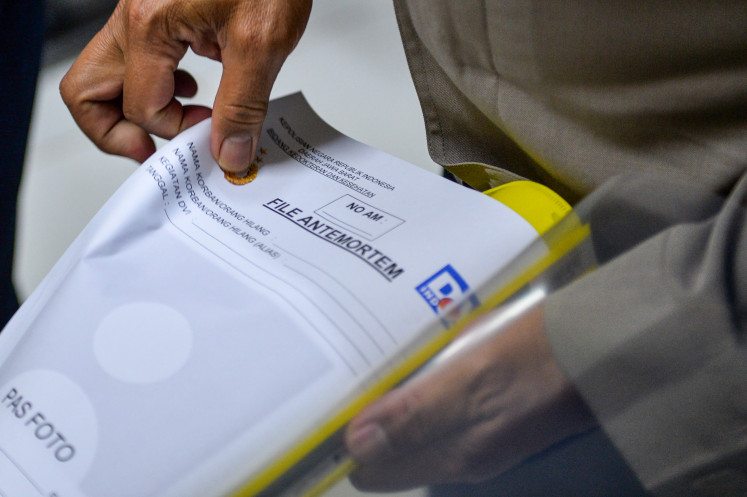Papua New Guinea proposes firing-squad executions
Following a number of high-profile killings related to sorcery, Papua New Guinea's government is pushing for the South Pacific nation's first execution and says firing squads would be a humane and inexpensive method
Change text size
Gift Premium Articles
to Anyone

F
ollowing a number of high-profile killings related to sorcery, Papua New Guinea's government is pushing for the South Pacific nation's first execution and says firing squads would be a humane and inexpensive method.
Papua New Guinea's laws allow for the death penalty and about 10 condemned inmates are currently in prison there, but the country was a colony of its near neighbor Australia when the last prisoner was executed ' by hanging ' in 1954.
Prime Minister Peter O'Neill said on Wednesday that legislation will be introduced when Parliament resumes in two weeks that would allow the country to implement the death penalty.
"Among the methods discussed include death by firing squad, which was considered more humane and inexpensive than other methods," O'Neill said in a statement following a Cabinet meeting Wednesday. He said an "execution center" would be attached to a new prison to be built in a remote location.
The prime minister's office did not immediately explain on Thursday what the hurdles were to executing prisoners that the new legislation would overcome.
The capital punishment push is part of a raft of tough new measures proposed by the government in response to an increase in high-profile violent crimes in the poor tribal nation of 7 million people, most of whom are subsistence farmers.
In February, a mob stripped, tortured and bound a woman accused of witchcraft, then burned her alive in front of hundreds of horrified witnesses in the city of Mount Hagan. O'Neill, police and foreign diplomats condemned the killing.
In July, police arrested 29 people accused of being part of a cannibal cult in Papua New Guinea's jungle interior and charged them with the murders of seven suspected witch doctors.
Papua New Guinea's Criminal Code states that the death penalty "shall be carried out by hanging the offender by his neck until he is dead." In 2009, Attorney-General Alan Marat told Parliament that death row prisoners were not being executed because the law did not detail procedures for carrying out capital punishment.
Some Papua New Guinea analysts said part of the reason that the country has not executed prisoners is the tribal culture of payback. An executioner, or even lawmakers who enabled the execution, could be subjected to violent retribution from members of the executed prisoner's clan.
"That's probably one element," said Jenny Hayward-Jones, director of the Melanesia Program at the Sydney-based Lowy Institute foreign policy think-tank.
"The official reason is that they've lacked the means to execute anyone since they introduced the law, but in reality I suspect it's just too difficult for them to do, as are many things in PNG," she added.
When Papua New Guinea became independent in 1975, treason, piracy and attempted piracy were capital crimes. Willful murder was only added to the list in 1991.
While Papua New Guinea shares a border with Indonesia, which uses firing squads for capital punishment, its largest foreign aid donor, Australia, opposes the death penalty.
Much of the United States allows capital punishment, but rarely by firing squad. Oklahoma would allow death by firing squad only if electrocution and lethal injection were ever ruled unconstitutional. Utah ended death by firing squad in 2004, although inmates sentenced earlier than that have been able to choose that method. Firing squads are also used in the United Arab Emirates.









